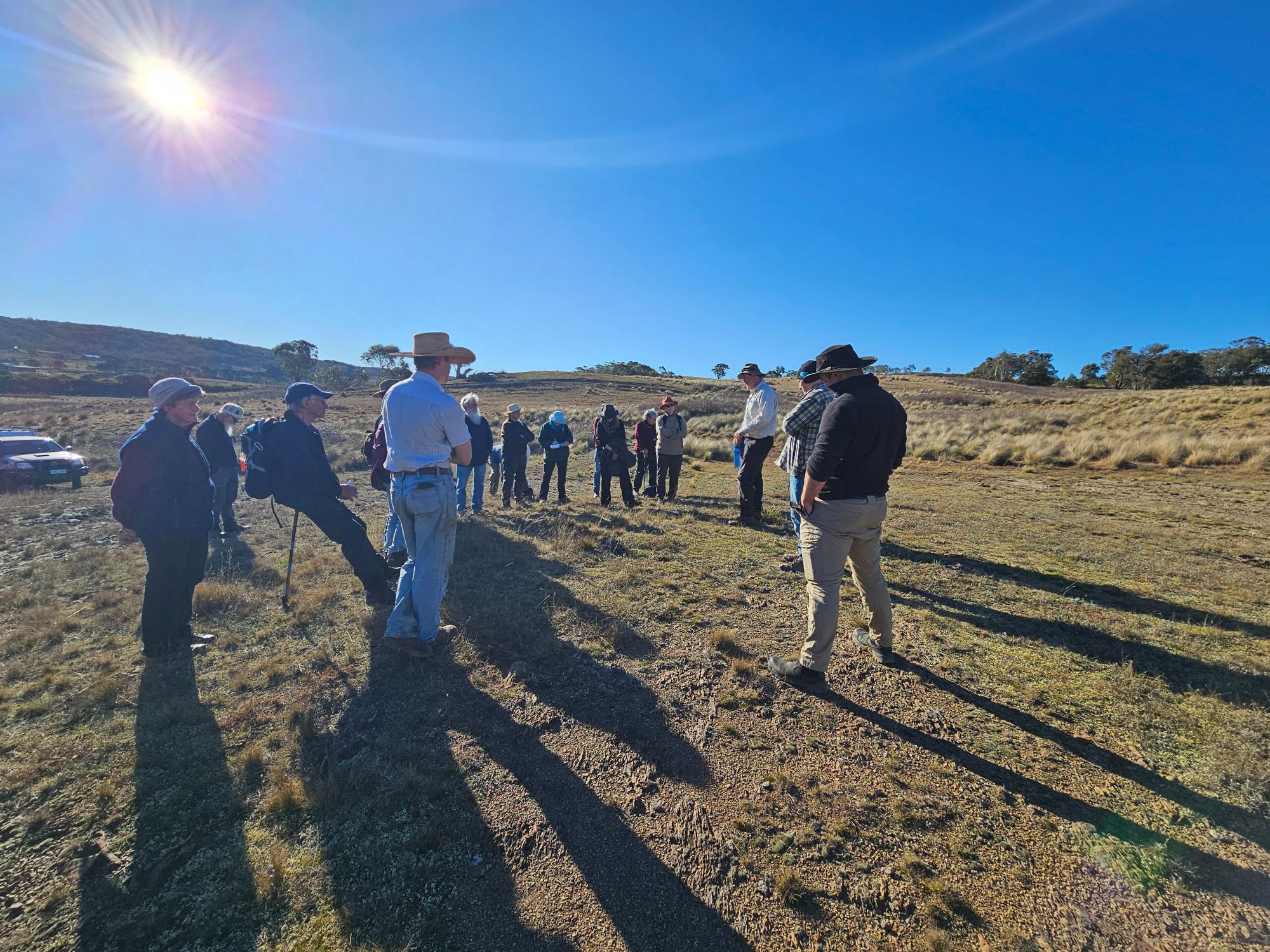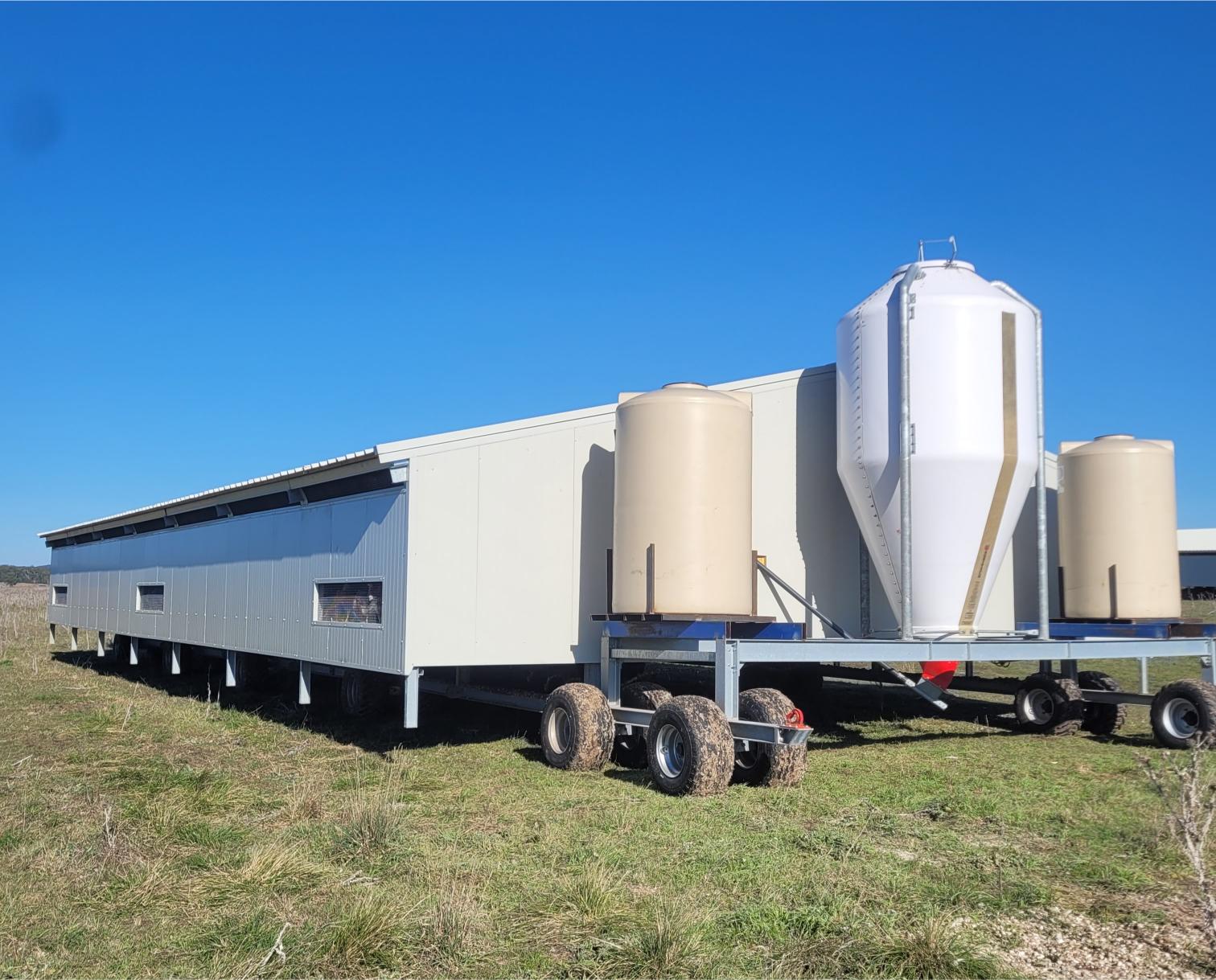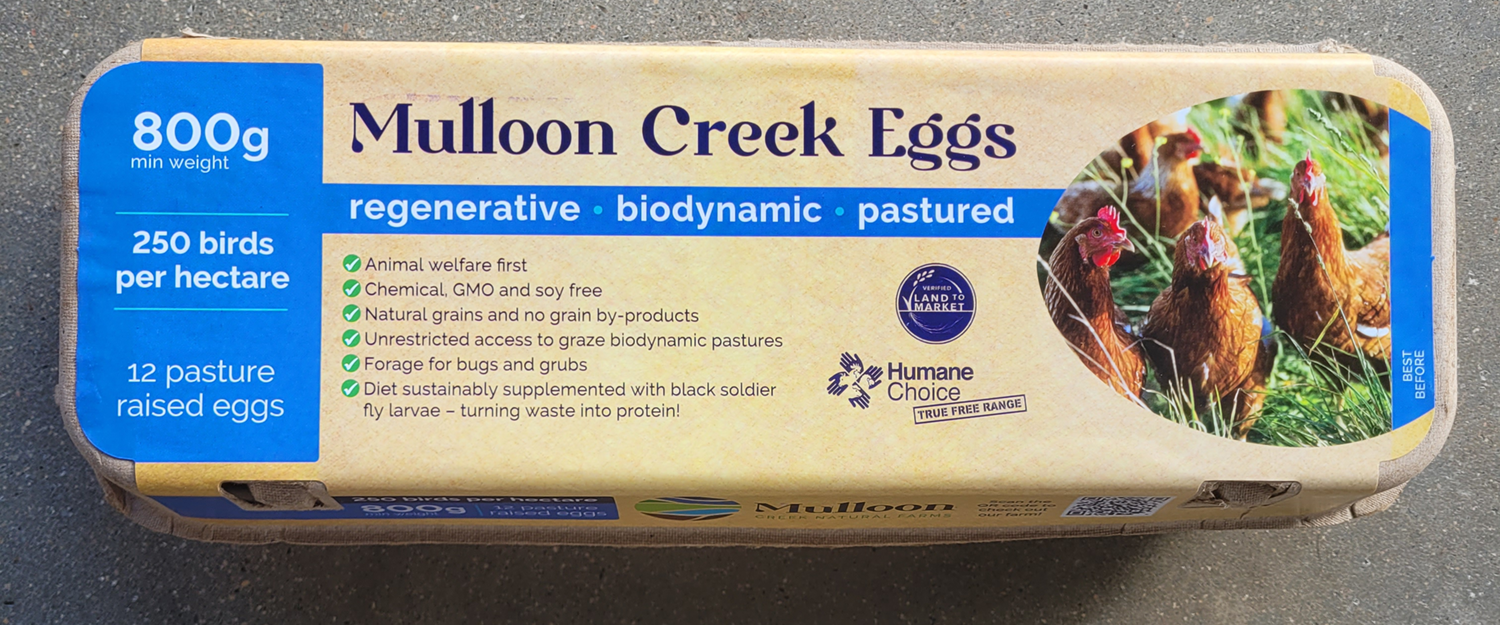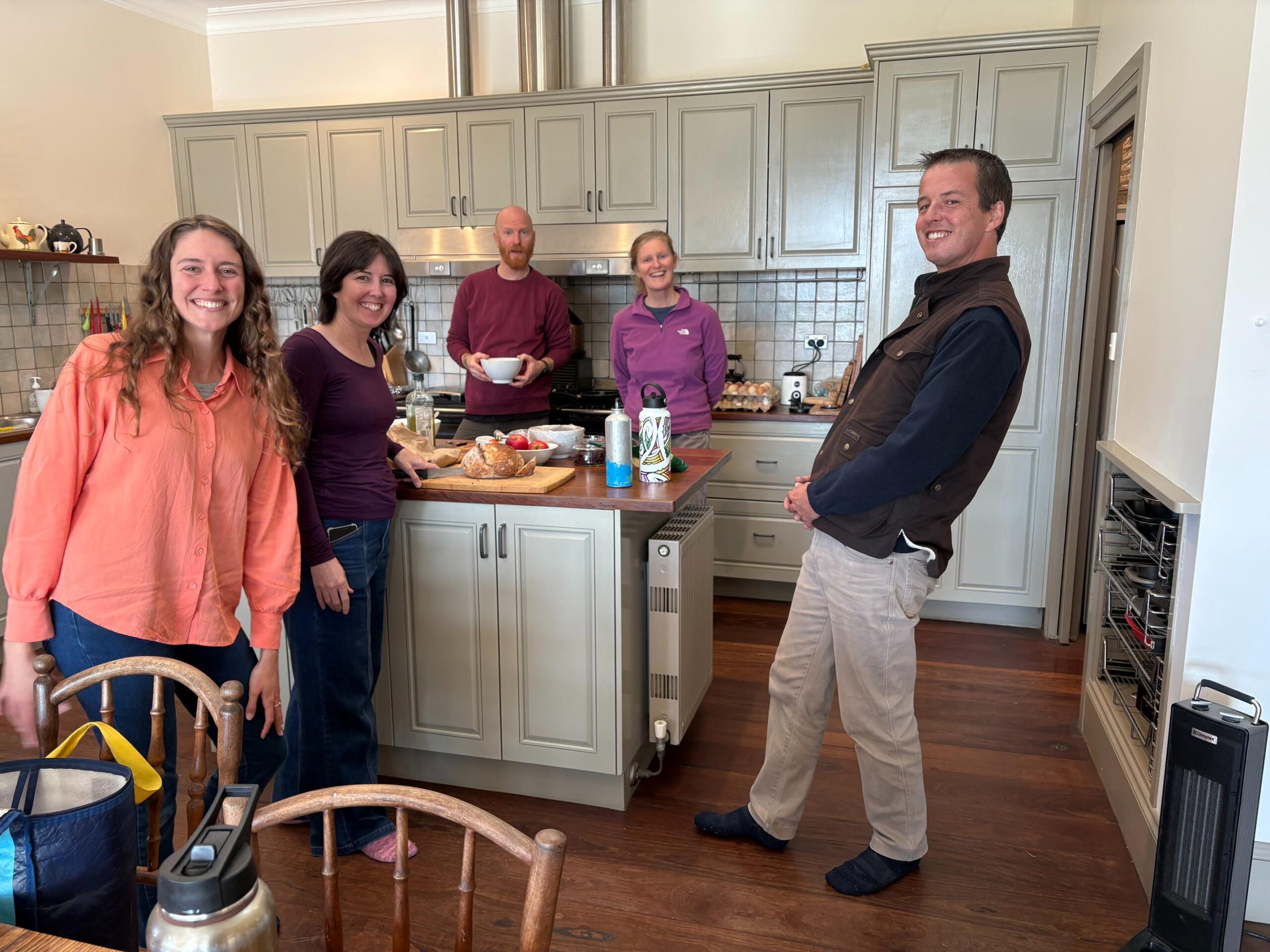Mulloon Creek Natural Farms (MCNF) has experienced a very favourable autumn with good rainfall, mild temperatures and substantial pasture growth. The abundance of feed has allowed us to stock pile feed in several paddocks which should ensure that cows are well fed through the winter.
The above average seasons MCNF has had over the past four years has seen vermin numbers dramatically increase despite constant control measures being in place. Additional programs have been introduced to assist in reducing the vermin populations and the damage to our pastures and infrastructure.
Noxious weed control is an ongoing priority, and this season control work has been very successful with outstanding results achieved over the areas covered.
The cattle have enjoyed the autumn and a good bulk of quality feed leaving them in excellent condition moving into winter and before calving.
The MCNF team has also been busy constructing four new mobile layer sheds to house our latest batch of pullets. These sheds are designed to increase our efficiency, biosecurity and resilience to extreme weather conditions as well as vermin and predator attacks. This keeps the chickens safe from predators overnight in the sheds and they are then released each morning to forage freely in the paddocks. These new sheds are our most effective defence against avian influenza.
In 2024 significant efforts went into the manual removal of blackberry thickets from the chicken paddocks as we observed foxes harbouring in them. This, combined with exclusion fencing and the new sheds, has seen a significant reduction in predation, improving our animal welfare and delivering on our commitment to a chemical-free production system. This careful management has been reflected in the high laying rates of our chickens, exceeding 90% lay rate which has never before been achieved at Mulloon Creek Natural Farms.
Our dedication to our biodynamic pastures continues with production of biodynamic preparations for application in the spring in full swing. We are also in the process of developing our own compost teas and compost. Our eggs remain in high demand and the efforts on farm have increased our production levels and ultimately our profitability.
We have recently preg-tested our cows and heifers. The results were 98% for the cows and 95% for the heifers. While results in the 90s are not uncommon to achieve above 95% for heifers and cows is a great result. Careful management, good bulls and high-quality pastures have contributed to these pleasing results. A message from the local vet also acknowledges the temperament of the animals and our team, “your herds were a pleasure to work with, smooth through the yards and with great helpers.”
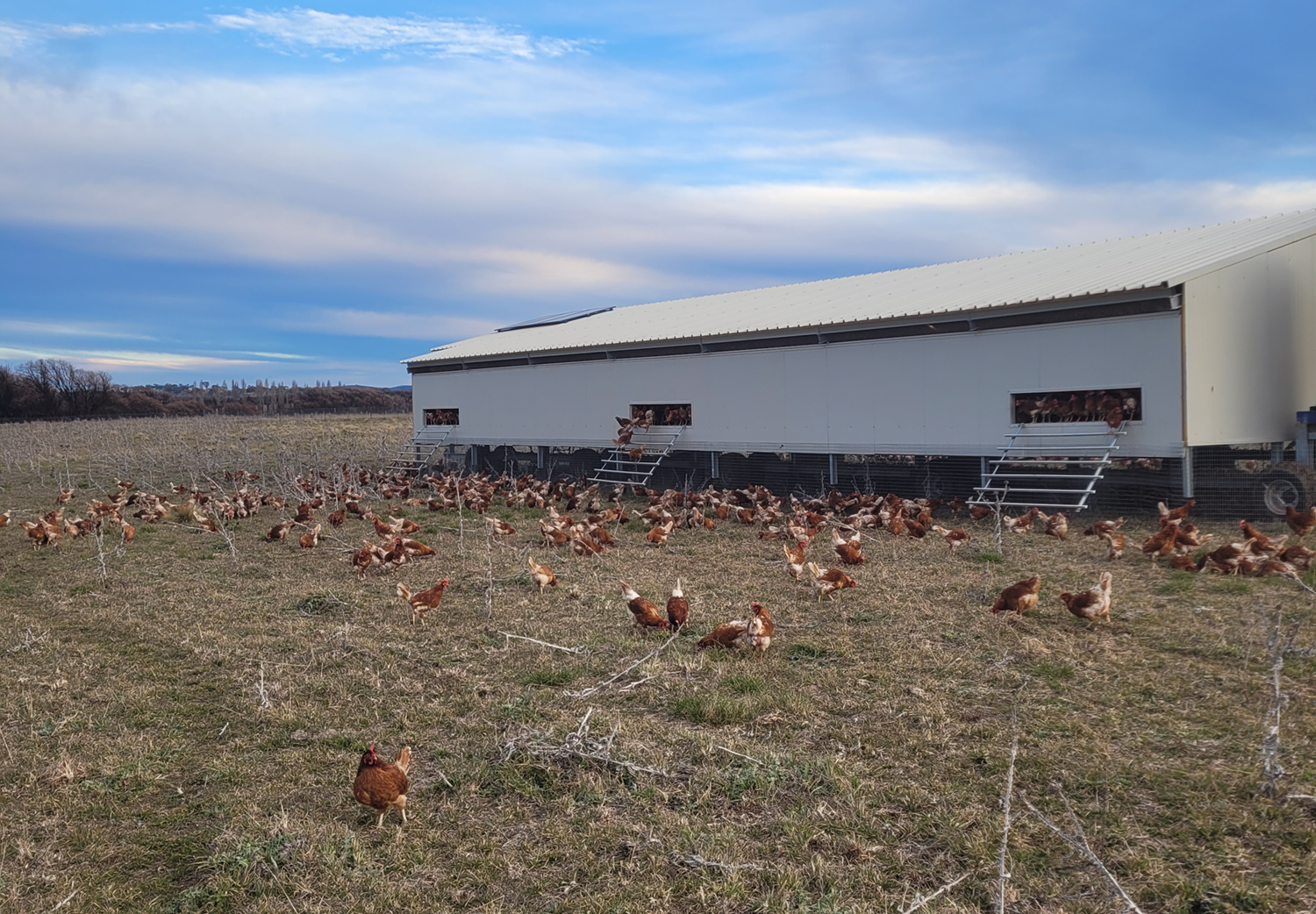
On Friday 20 June, Peter Hazell, Louis Convery, Chris Inskeep and Colby Soderberg hosted 20 members of the Friends of Grasslands (FOG) at Home Farm.
Peter says, “We took the FOG members over to a 30Ha paddock of native grasses and other things, called Scotts, on the eastern side of the creek. They were keen to find a bit more out about Mulloon. For their part they said they would identify as many plant species as they could within this paddock.
“In the two hours the group spent walking gently around only a small percentage of Scotts paddock, they found 70 species of plants, more than 20 species of lichen and several fungi species as well! In the middle of winter, in a paddock that has seen no active management for grassland biodiversity – that is an exceptional number of plant species. FOG’s leader, Margaret Ning, said she will write up the species list and send it to me.
“It was a most enjoyable perambulation on a sunny winter’s afternoon with the people of FOG. One that I am sure will be repeated, and which I am also sure will reveal further hidden treasures at Home Farm”.
